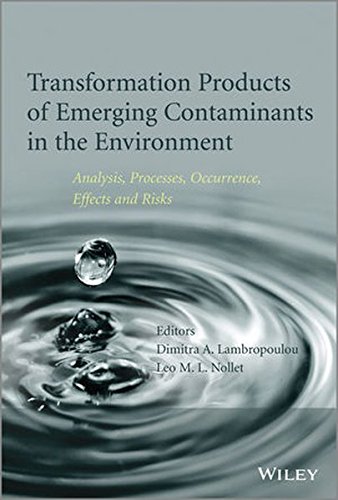

Most ebook files are in PDF format, so you can easily read them using various software such as Foxit Reader or directly on the Google Chrome browser.
Some ebook files are released by publishers in other formats such as .awz, .mobi, .epub, .fb2, etc. You may need to install specific software to read these formats on mobile/PC, such as Calibre.
Please read the tutorial at this link. https://ebooknice.com/page/post?id=faq
We offer FREE conversion to the popular formats you request; however, this may take some time. Therefore, right after payment, please email us, and we will try to provide the service as quickly as possible.
For some exceptional file formats or broken links (if any), please refrain from opening any disputes. Instead, email us first, and we will try to assist within a maximum of 6 hours.
EbookNice Team

Status:
Available4.8
24 reviewsOver the last 15 years, the focus of chemical pollution has shifted from conventional pollutants to so-called ''emerging'' or ''new'' unregulated contaminants. These include pharmaceuticals and personal care products, hormones, UV filters, perfluorinated compounds, poylybrominated flame retardants (BFRs), pesticides, plasticizers, artificial sweeteners, illicit drugs, and endocrine disruptor compounds (EDCs). Despite the increasing number of published studies covering emerging contaminants, we know almost nothing about the effects of their transformation products and/or metabolites.
This two-volume set provides a unique collection of research on transformation products, their occurrence, fate and risks in the environment. It contains 32 chapters, organised into 7 parts, each with a distinct focus: - General Considerations - Transformation Processes and Treatment Strategies - Analytical Strategies - Occurrence, Fate and Effects in the Environment - Global Speciality and Environmental Status - Risk Assessment, Management and Regulatory Framework - Outlook
''Transformation Products of Emerging Contaminants in the Environment'' is a valuable resource for researchers and industry professionals in environmental chemistry, analytical chemistry, ecotoxicology, environmental sciences, and hydrology, as well as environmental consultants and regulatory bodies